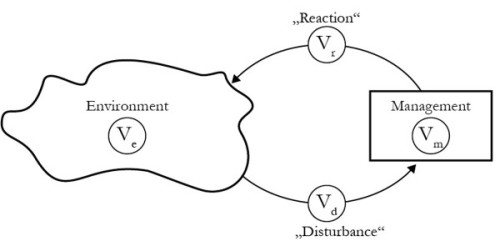ADVISORY ARTICLE
By Michael Frahm
Baden-Württemberg, Germany
Introduction
In today’s construction industry, projects are under increasing pressure to respond flexibly, sustainably and efficiently to complexity. In addition to traditional goals such as adherence to deadlines, cost certainty and compliance with quality standards, other requirements are now coming to the fore. These include short innovation cycles, changing regulatory frameworks, volatile markets, multidimensional target systems and staff shortages. Against this backdrop, project management is increasingly important as a formative element. It creates structures that enable not only stability but also adaptability. The established tools and procedures as described, for example, in the AHO (2020) service profile, form an important basis for this. At the same time, it is becoming apparent that traditional methods alone are often not enough to cope with the growing complexity and dynamism. It therefore makes sense to consider complementary approaches from other areas. These include principles of lean construction, integrated project delivery and approaches from systems thinking, which can provide valuable impetus for the further development of project management (Frahm & Rahebi 2021).
Complexity as a fundamental condition of project management
Construction projects are characterised by a multitude of participating institutions, interests and interfaces. Decisions made in one area often have unexpected impact on other parts of the system. Complexity requires an understanding of interactions, uncertainty and the dynamics of change. Complex project contexts involve characteristics such as:
- Rapid phase transitions,
- Unclear or changing goal definitions,
- Mutual dependencies with non-linear influence,
- High sensitivity to disruptions,
- Time-delayed or feedback-based cause-and-effect relationships,
- High risks (Frahm & Pfiffner 2023).
Today, project management must do more than just classic control and planning. It must grasp contexts, anticipate changes and keep decision-making options open. This is resource-intensive and requires not only methodological competence but also a high degree of flexibility. It is important to actively manage interfaces and changes, to react quickly to short-term shifts and, at the same time, to identify long-term trends early on and take them into account strategically.
W. Ross Ashby’s Law of Requisite Variety provides a central theoretical foundation for managing complexity (Ashby 1956). Put simply, it states that only variety can regulate variety. This means that a control system must have at least as many options for action (variety) as the disturbances it seeks to regulate (Frahm 2025 a). Applied to project management, this means that the more complex and dynamic a project context is, the greater the flexibility, variety of action and responsiveness of the project management must be.

Figure 1 Ashbys Law
Conventional control models are based on fixed fields of action, such as project organisation, schedule and cost management, or contract coordination (AHO 2020). These provide stability and the foundation for the complexity-appropriate management of any project. However, limitations become apparent in dynamic projects. Project structures and processes are needed that are capable of responding to disruptions in a self-regulating manner via control loops and transparent information flows. Adaptive, complexity-appropriate, feedback-based management that takes both formal and informal processes into account is necessary (Frahm 2015).
More…
To read entire article, click here
How to cite this work: Frahm, M. (2025). Project management in construction and dealing with complexity, Advisory, PM World Journal, Vol. XIV, Issue IX, September. Available online at https://pmworldlibrary.net/wp-content/uploads/2025/09/pmwj156-Sep2025-Frahm-Project-management-in-construction-dealing-with-complexity.pdf
About the Author

Michael Frahm
Baden Württemberg, Germany
![]()
Michael Frahm studied civil engineering and business law in Stuttgart, Kaiserslautern and Saarbrücken. Management courses at HEC Paris, HHL and Northwestern University. Winner of the Young PM Award of the GPM (IPMA) in 2010. Certification as Senior PM of the IAPM and certification as Advanced System Thinking Practitioner of the SCiO. Author of construction project management books with a systems perspective. Numerous articles and lectures on engineering and management. Lecturer on major project management and systems practice. More than 15 years of experience in the construction industry. Director of SCiO in German-speaking countries. Vice President of the EFBK- European Forum for Construction Cybernetics.
He can be contacted at michael.frahm@systemspractice.org or Orcid: https://orcid.org/0000-0001-8470-6147 or LinkedIn: https://www.linkedin.com/in/michael-frahm-65220573/









